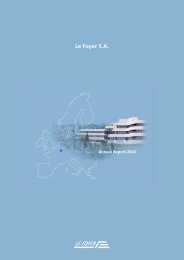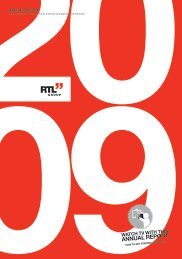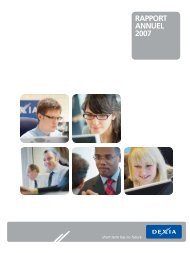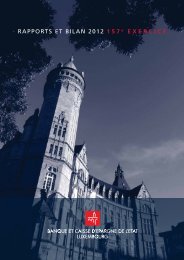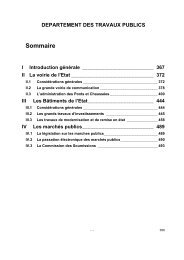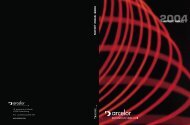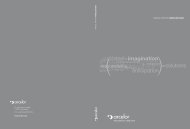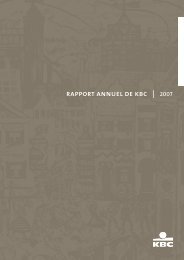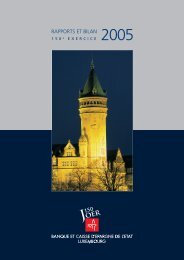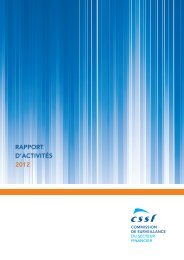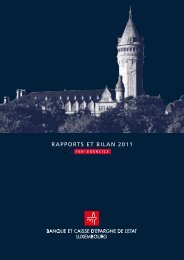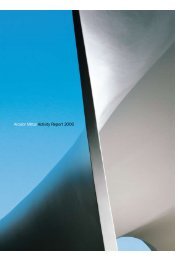Annual Report - paperJam
Annual Report - paperJam
Annual Report - paperJam
You also want an ePaper? Increase the reach of your titles
YUMPU automatically turns print PDFs into web optimized ePapers that Google loves.
Mutual assistance in criminal matters<br />
The purpose of the law on mutual assistance<br />
in criminal matters is to approve two texts of<br />
European conventions in the field of mutual<br />
judicial assistance in criminal matters: the<br />
Convention of 29 May 2000 and the Protocol<br />
of 16 October 2001. The 2001 Protocol tends<br />
to broaden the scope of mutual assistance<br />
between the Member States and, in particular,<br />
sets out rules applicable to applications for mutual<br />
assistance concerning bank information.<br />
The 2001 Protocol requires each Member State,<br />
upon request and in certain specific cases, to<br />
take the measures necessary to provide the applicant<br />
state with 1°) information specifying whether<br />
a particular person holds or controls one or more<br />
bank accounts at a bank situated on its territory<br />
and 2°) in a second step, information on banking<br />
operations which have been carried out during<br />
a specified period on this account. The Member<br />
States shall also adopt internal measures enabling<br />
transactions effected on an account to be supervised<br />
for a particular period of time.<br />
Credit institutions shall not reveal to the client<br />
concerned or to third parties (without the express<br />
prior consent of the authority which ordered the<br />
measure) the fact that documents have been<br />
seized or that documents or information are to<br />
be communicated to a foreign State as a result of<br />
the execution of a request for mutual assistance.<br />
The right to inform the client still exists if funds<br />
are seized. The right of recourse of the client is<br />
replaced by an automatic verification of the<br />
regularity of the proceedings by the Chambre du<br />
Conseil. When his accounts have been seized, the<br />
client is allowed to present a memorandum within<br />
ten days of notification of the act to the bank.<br />
New law on money laundering<br />
The law of 27 October 2010 amended some 21<br />
existing laws. Its purpose is to respond to FATF<br />
criticisms of the Luxembourg rules on the prevention<br />
of money laundering and the financing of<br />
terrorism.<br />
The law somewhat extends the list of primary<br />
offenses, the definition of the offence of money<br />
laundering, and the categories of professionals<br />
concerned. The law confers a legal existence on<br />
the Financial Intelligence Unit (FIU). The unit itself<br />
is placed under the authority of a deputy public<br />
prosecutor. It has exclusive nationwide authority<br />
in the area of the prevention of money laundering<br />
and the financing of terrorism. The law now defines<br />
clearly its missions.<br />
14 April 2010<br />
13 April 2010<br />
Luxembourg for Finance and Mosfinagency sign<br />
a Memorandum of Understanding to contribute to<br />
the development of both financial centres.<br />
ABBL Response to the Basel Committee’s Consultative<br />
Document “International Framework for Liquidity Risk<br />
Measurement, Standards and Monitoring”.<br />
ABBL Response to the Basel Committee’s Consultative<br />
Document “Strengthening the Resilience of the Banking Sector”.<br />
22




